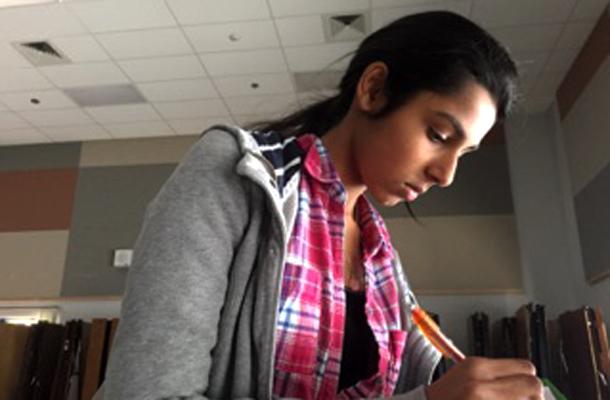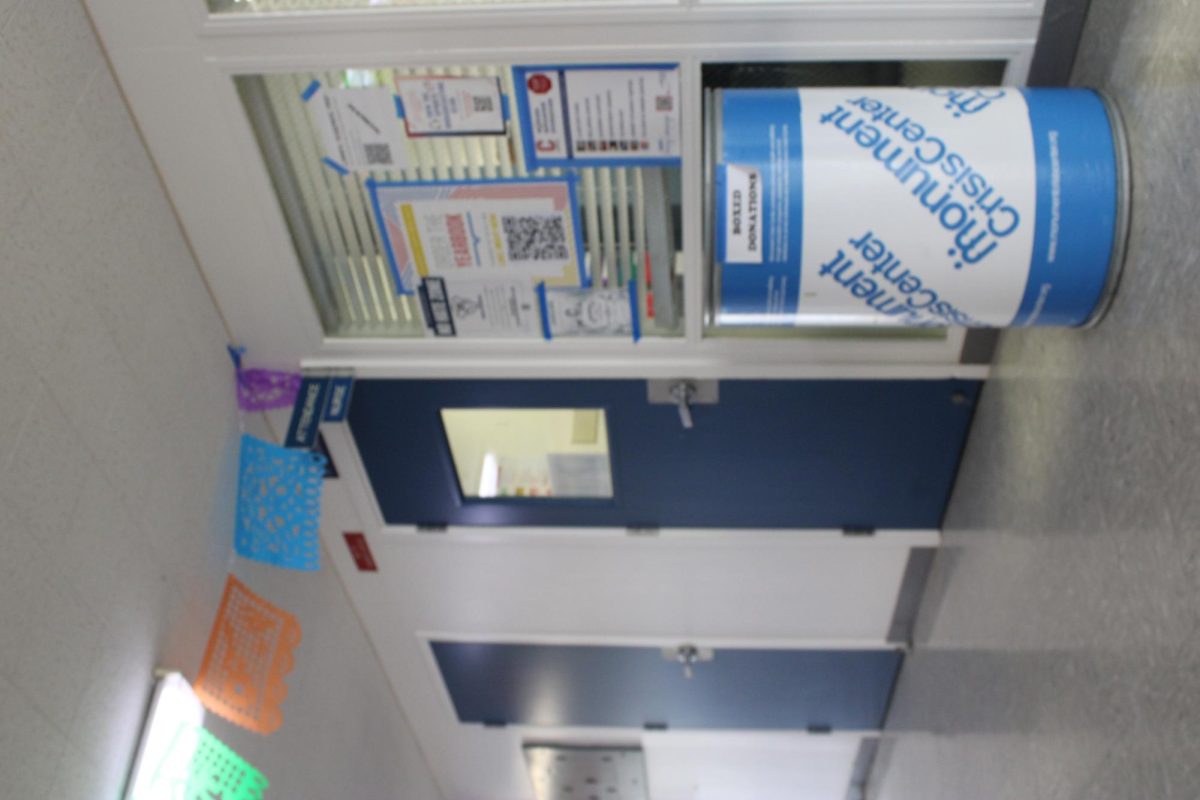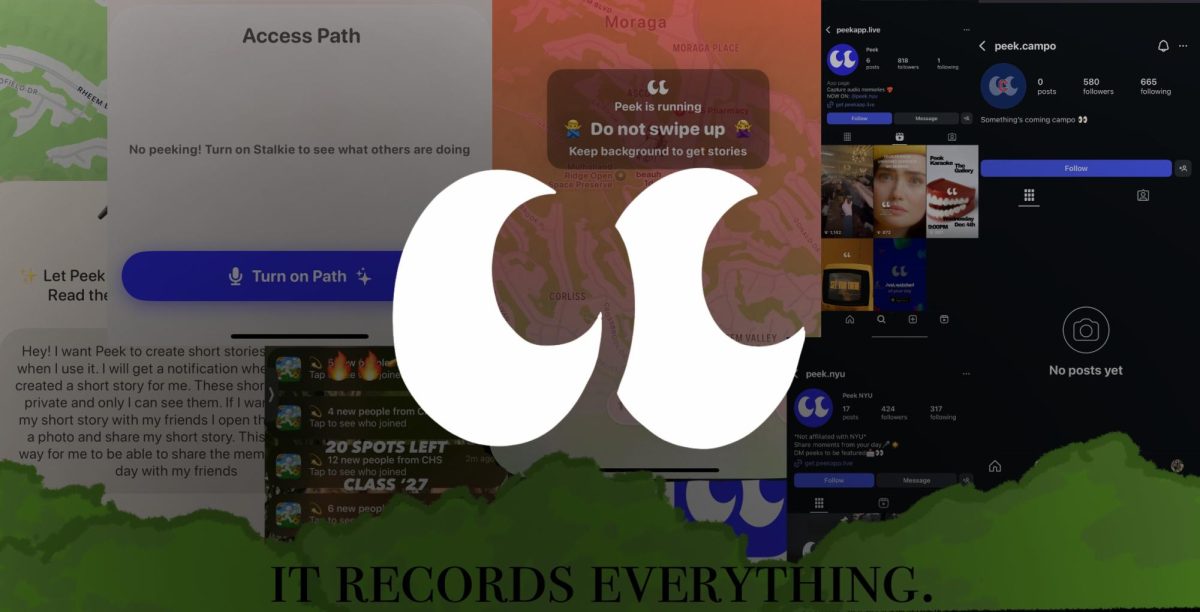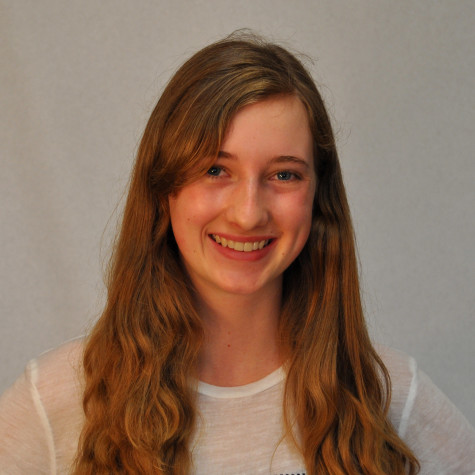On February 26, many math-oriented students entered the American Mathematical Contest at 7:45am to challenge themselves with a test that is said to be even harder then the SATs.
Freshman Athya Uthayakumer said the AMC was, “a test designed to challenge students targeted by the grade level its directed at, like AMC 10 [for 10th graders], AMC 12 [for 12th graders]. And it’s hard to study for because you can’t really anticipate what is on the test. You kind of need to know the basics of math and then put it all together to do the problems on the test.”
According to Bridgitte Jia, another freshman, “It is a test administered to all students if you volunteer or if you sign up for the AMC, then you can go into the cafeteria in the morning on Wednesday and then do all the stuff – all the problems.”
Math teacher and AMC proctor Nick Schoen said, “In a word, I’d say it’s humbling to even the top math students. The [students] find it maybe a little disheartening but challenging and keep signing up for it, more punishment. It’s either masochism or they just like the challenge or they like to get out of first period. I’m not sure which. But mostly I think they enjoy the challenge.”
Schoen explained that AMC was almost canceled this year. “It almost didn’t happen this year because the tests arrived today [February 26] actually so they had to send me PDF copies of it. That’s why they looked a bit sketchy, just photocopied yesterday,” he said. Despite the problems, AMC administration went smoothly.
Uthayakumer said the levels of the AMC have “a lot of focuses. Geometry and Algebra are some main points because most people have taken those classes by 9th or 10th grade. There’s a lot of abstract Algebra.”
Uthayakumer said, “I know that the test [AMC 8] has been going on for at least fifteen years now and the past schools I’ve gone to have done it for a long time. There’s the AMC 8 for middle schoolers. The AMC 8 is designed to be taken by 8th graders so I know that if I took it this year I’d be able to do pretty well on it.”
“But the test I took this year, AMC 10, is definitely more challenging. There’s just a lot of concepts I didn’t understand or tools that I didn’t quite have but I almost had. I almost knew what to do but then I got lost on the way on some of the problems,” Uthayakumer explained.
Schoen said, “It is a bit restricted to the kids that are really into math, which is designated by their [level] of math like Honors Geometry, or Honors Algebra Trig, or Calculus AP. It’s usually those students that take it but other students that are not in those Pre-Calculus students sometimes take it, Stat students sometimes take it. But usually they don’t just jump into it from Algebra 1 because they’ve sort of been participating since 8th grade or before.”
The AMC was advertised throughout math classes. “It’s pretty widespread. A lot of the teachers advertise it, “Jia said. “My math teacher said, ‘Hey there is this test coming up next month, want to sign up?’ and we passed the legal pad around and then he never said a word about it until the day before when he was like ‘By the way, 7:45 tomorrow, go to the cafeteria.”
The AMC is unique due to its difficulty. “It’s kind of similar to the SAT just harder,” Jia adds, “The problems require a lot more thought out, you need to know certain things that you need to know for the SATs and then employ them in different ways. So i took the SATS and I studied for it and I thought it was easier than the AMC is.”
Schoen said, “[The AMC is harder] by far. The SAT goes up through Geometry, and there’s no way you can really study for this, because they’re not even like any material you’ve seen before. They’re just sort of obscure problems that use different problem solving techniques that are not ones that are generally looked out before unless they are part of a math circle or some kind of-you know, people who get together to solve math problems. They might have seen some of the techniques before.”
Uthayakumer thinks the difficulty of the test is different for everyone. “That depends on the kind of student you are. If you enjoy math and you enjoy the foundations you might do better on the AMC [than finals] but if you’re someone that learns from what’s in the book you might do better on the Finals so it really just depends on the student,” she said.
Though the test is hard, all three agree that the test allows personal growth. Uthayakumer explained “It requires you to be flexible-even if you’re not good at math, taking this kind of test is helpful for situations. I felt a lot of pressure for this test dealing with pressure, learning to apply yourself in different ways and definitely just being capable of things you didn’t know you were capable of before.”
Schoen said, “I think students see themselves much better at cracking difficult problems, looking at them in different angles and sometimes solving the mat of the box. Sometimes the solutions, when I look at the solutions, they are very elegant and simple but I wouldn’t have thought of that.”
The students are actually not taught what to study for the test. Schoen explained, “They are not prepared at all unless they study for it. We don’t prepare them for it in class, let’s put it that way. So some students prepare by just doing practice problems but like I said it’s not in line with any of the curriculum we teach. It’s just critical thinking, applying some skills you learn from different classes. Really its just Algebra, there’s nothing required beyond Geometry or advanced algebra I guess sometimes. A lot of it is just to learn techniques solving problems.”
No matter how challenging the test is, Uthayakumer and Schoen encourage others to take part. “It doesn’t really matter your math level though, just how you understand the ideas your learning in your class. Even if you’re in a lower math level, if you understand the ideas in your class, you can definitely ace some of the questions. You might be limited because of how specific the questions are. It’s really fun no matter if you like math or not, its a great experience. This is my fourth year and it’s great,” said Uthayakumer.
Schoen added, “I encourage it. If students enjoy it, they should join bay area math circle or a math club and spend their time looking at obscure and sometimes humbling problems like those.”







